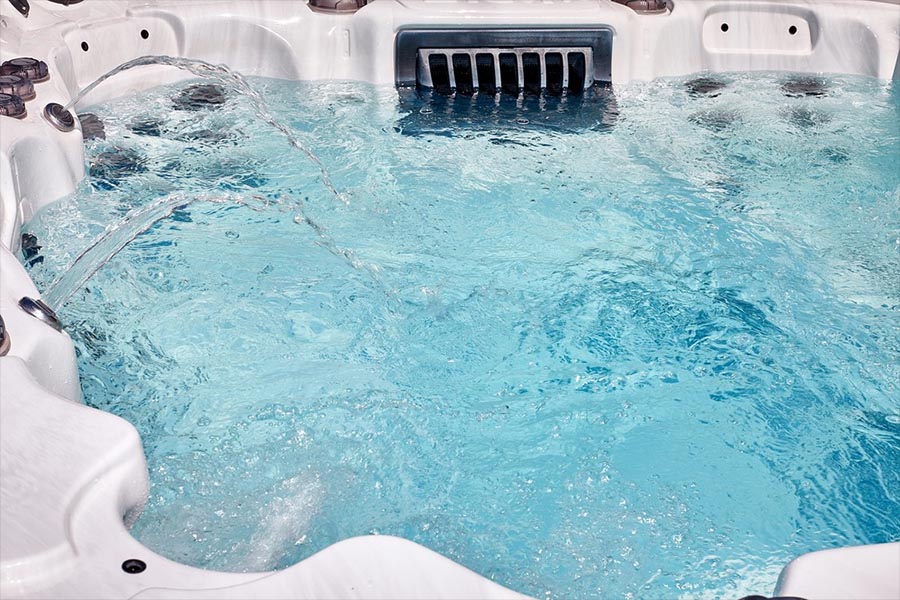Helpful Pool & Spa Advice

Common Questions About Hot Tub Water Maintenance
Hot Tub water chemistry is often an illusive cross between magic and a proper balance of chemicals in your water. We have developed a small list of commonly asked questions about your water chemistry. In addition, you can also view our Hot Tub Water Chemistry Guide for additional information. If your question is directly related to a product that you need assistance with, please feel free to give one of our customer service specialists a call at: 800-918-9143, or click our chat button during normal business hours.
You should also take a look at our Online Knowledge Base for additional information about your hot tub. It contains up to date information about maintenance, purchasing replacement products, and a whole lot more.
Why do I need to correct my pH/Alkalinity constantly?
Almost everything can cause the pH level to change; Example: spa usage raises the pH level whereas adding chlorine lowers it. Alkalinity can also change when you add water.
Why is the pH level higher in my spa than in my pool, or when I test it from source water?
Warm water maintains a naturally higher pH level.
Is it better to have the pH read on the low or high side of 7.2 to 7.8?
Chlorine prefers a lower pH level (7.2 to 7.5) where bromine works equally well throughout the entire range of 7.2 to 7.8.
What is the benefit of using Potassium Monopersulfate?
This non-chlorine shock agent reduces the use of sanitizers by doing some of the work of chlorine and bromine by oxidizing contaminants and requiring the chlorine or bromine to simply do the sanitizing.
What is Scaling in the Water?
Scaling is a precipitation (like barnacles) that forms on the internal spa components along with the spa shell when they are in contact with water where there is a too high level of Calcium, pH, alkalinity, and/or mineral content, or an excessively high water temperature.
Will it hurt my spa or my water chemistry if I add too much of a mineral agent?
The overuse of most mineral agents will not affect your water chemistry or hurt your spa but it is recommended to check with the manufacturer of the product you are using.
How Often Should I Change My Water?
The common answer voiced by all is every 90 days but it actually depends on the amount of chemicals you have added to your water. If you use your spa more often you may need to check the total dissolved solids level. If your water is over saturated your chemicals become ineffective.
What Causes the Foam in Spa Water?
Common causes of foaming are laundry soap residue on bathing suits and cleaning solution on filter cartridges that have not been thoroughly rinsed, along with deodorant, body lotions, hair products, waiting too long to change your water, high pH levels or poorly formulated chemicals.
What causes milky water and how do I correct it?
Untreated cloudy water can become milky water. Adding ph+ to a spa with very low pH level can cause a temporary chemical reaction that creates cloudy water. Adding a Natural Enzyme clarifier and putting in a new filter will help.
When I haven’t used my spa or jetted bathtub over a period of time I sometimes get a foul order when I first activate the jets. How can I rid myself of this problem?
This is a very common problem especially with jetted bathtubs since they do not have a filter system and the water in the lines often remains stagnant breeding bacteria. It is also a problem with hot tubs that have multiple pumps and jets where they are all not required to activate once or twice a day (often referred to as a clean out system). To rid yourself of this problem you can use a product often referred to as a jet-line cleaner.
Do Chemical Products have a shelf life?
Most chemicals do not have a shelf life as long as they are kept in a temperature controlled, dry environment. Liquid chemical products that freeze-up and granular products that are hardened should be disposed of.

